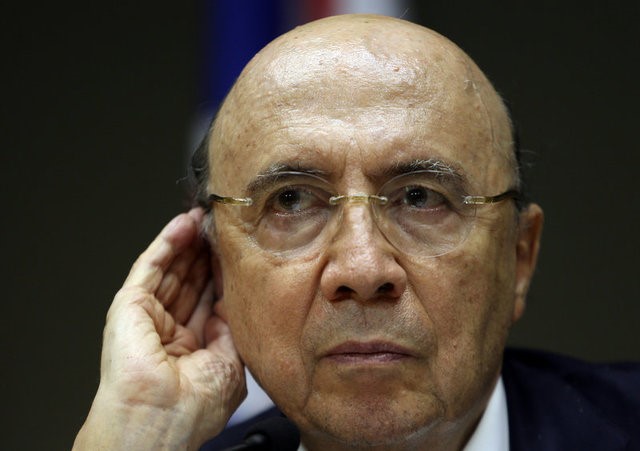By Bruno Federowski and Silvio Cascione
SAO PAULO (Reuters) - When former Brazilian President Dilma Rousseff's government repeatedly missed its fiscal targets, investors fled the country. Now that her successor, Michel Temer, seems poised to do the same, financial markets appear unperturbed.
Finance Minister Henrique Meirelles is expected to announce in the coming weeks a wider budget deficit goal for 2017 as a slower-than-expected economic recovery causes tax revenue to fall short of government expectations.
Brazil is currently targeting a deficit of 139 billion reais ($44.4 billion) before interest payments.
Investors and analysts say the likely revision would only mark a blip in an otherwise solid trajectory toward fiscal austerity that has restored optimism in Brazil, Latin America's largest economy.
"Markets are willing to accept worse short-term fiscal conditions if the long-term outlook seems solid, as currently looks to be the case," said portfolio manager Marco Bismarchi, who helps to manage 3.3 billion reais worth of assets as partner of São Paulo-based TAG Investimentos.
Fernando Honorato, the chief economist at Brazil's No. 3 listed bank, Bradesco SA, said a wider deficit goal should not trigger a strong market reaction because it would stem mostly from factors outside of the government's immediate control, such as tax revenue and obligatory spending.
The Brazilian real (BRBY) strengthened 6.2 percent last month, making it the best-performing currency in Latin America, while the benchmark Bovespa stock index (BVSP) hovered near three-month highs.
The performances underscore how center-right Temer's platform of market-friendly policies has begun to turn the page on fears of ballooning government debt - though the prospect of an uncertain presidential election in late 2018 looms.
Heavy spending under leftist Rousseff failed to spur growth as the economy slipped into a deep recession. She then struggled to set and achieve credible fiscal targets, costing Brazil its investment grade credit rating.
Temer, who was Rousseff's vice president, sought to establish a market-friendly image after taking power following her removal from office in 2016, setting austere fiscal goals and naming several orthodox economists to his cabinet.
Corruption accusations against him stoked concerns that lawmakers would oppose his plans to streamline the social security system.
Those fears lost steam after the lower house of Congress voted decisively last week not to send Temer for trial before the Supreme Court in a corruption case. The unpopular Temer, who has said he will step down after elections in 2018, has denied any wrongdoing.
Investors said they believe Temer will be able to pass the planned pension reform, seen as key to curbing growth of public spending, albeit a watered down version of it. Lawmakers estimate savings from the current version of the plan would amount to around half of the government's original proposal.
"I see a high chance that what we currently have on the table is what will ultimately be made into law," Bismarchi said.
His comments echo remarks by Finance Minister Meirelles, who told reporters last week that financial markets have been indicating growing trust in the government's credibility and would accept any decision as realistic.
A revision is also unlikely to lead to credit downgrades, economists said. Last Friday, ratings agency Moody's said corporate credit quality in Brazil is set to improve next year as investor optimism has been holding despite political turmoil.
